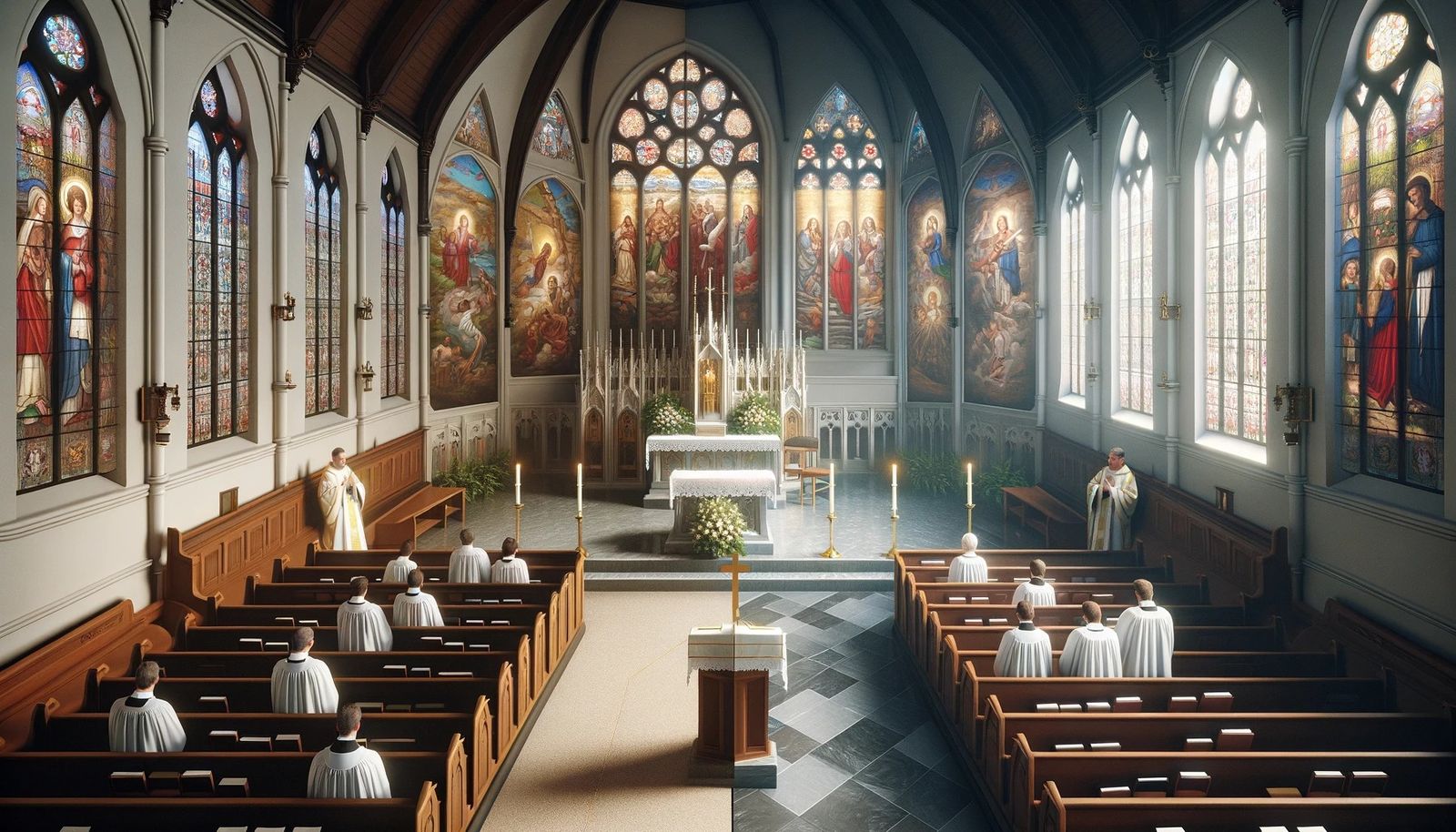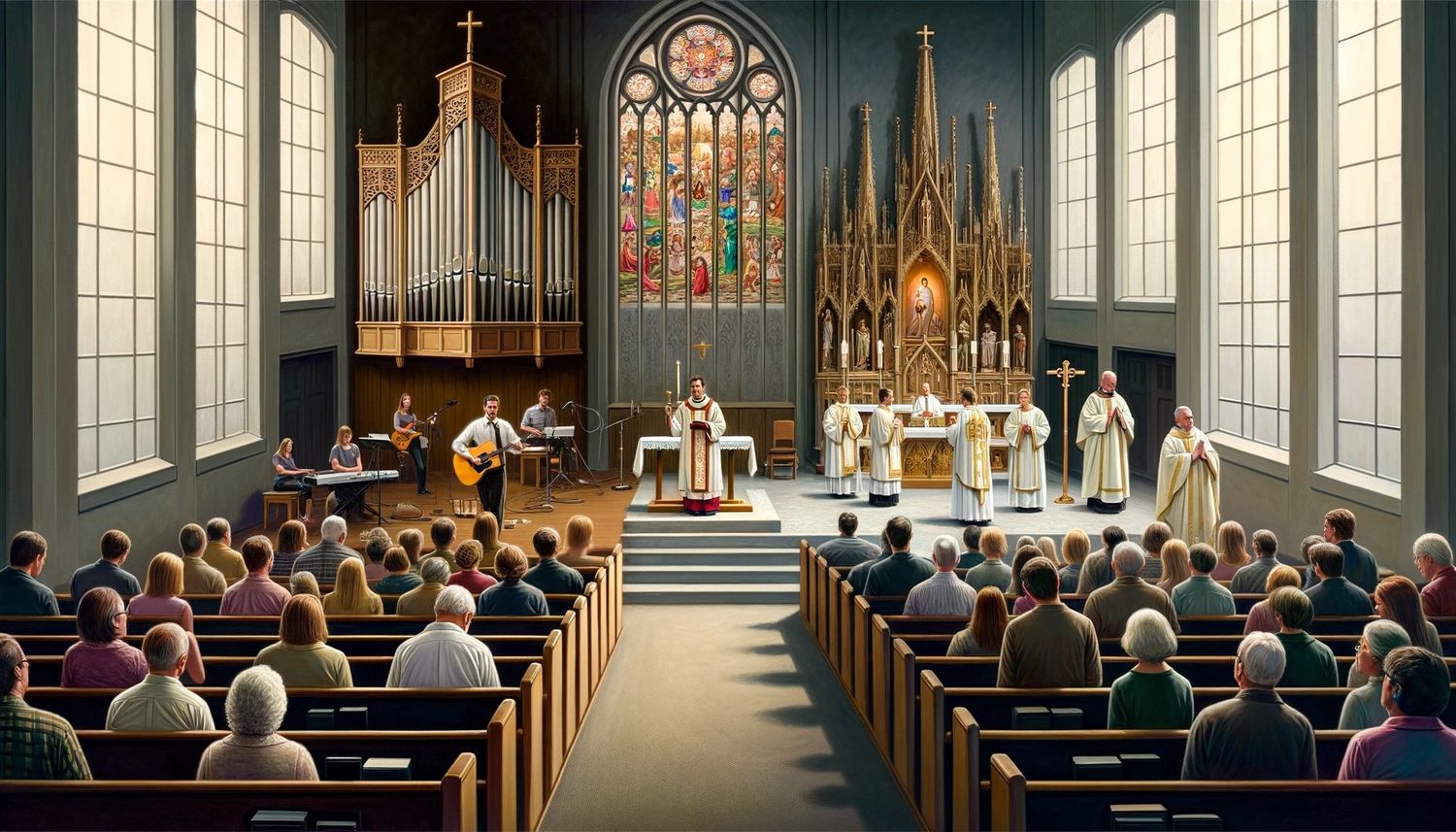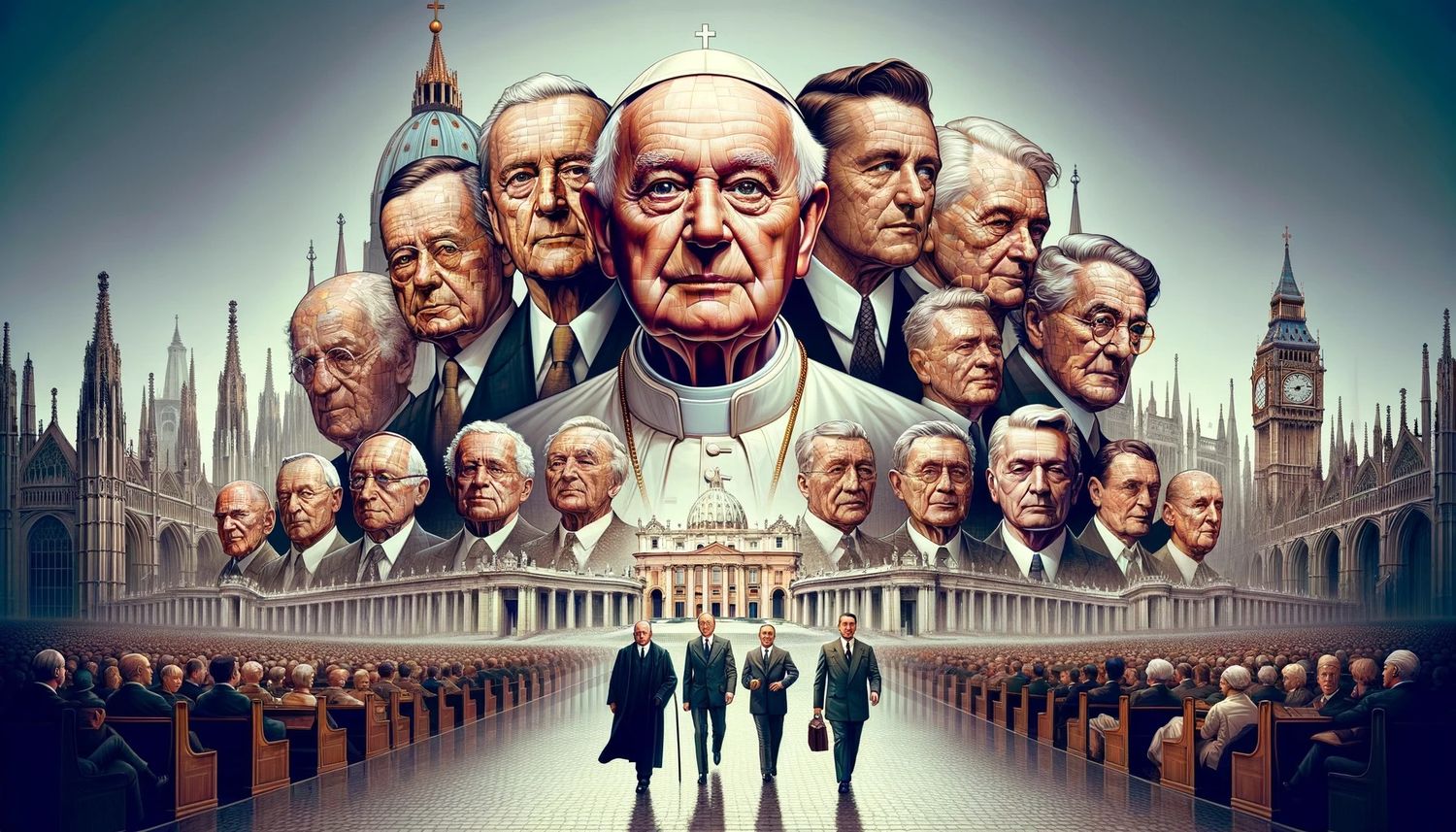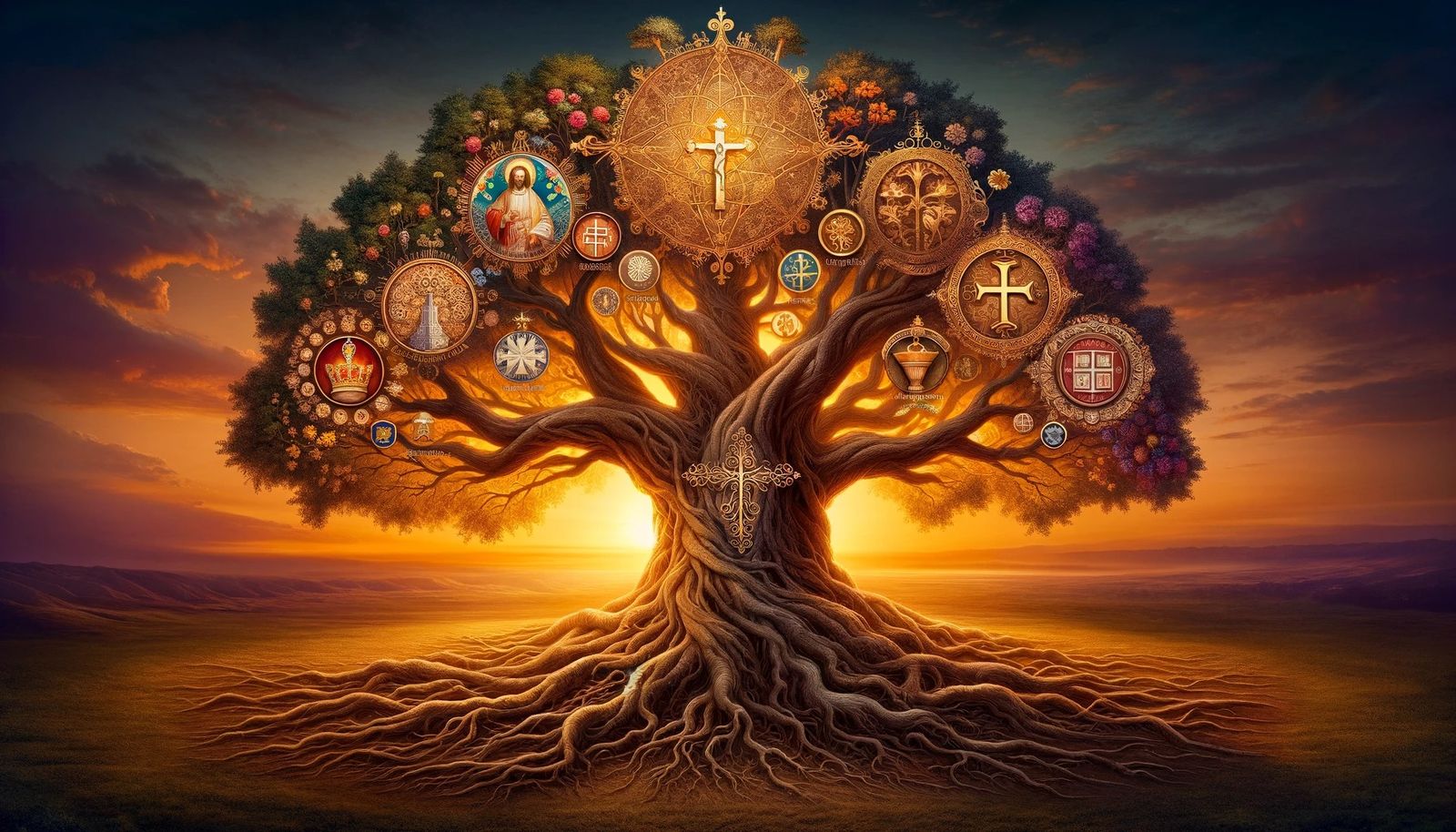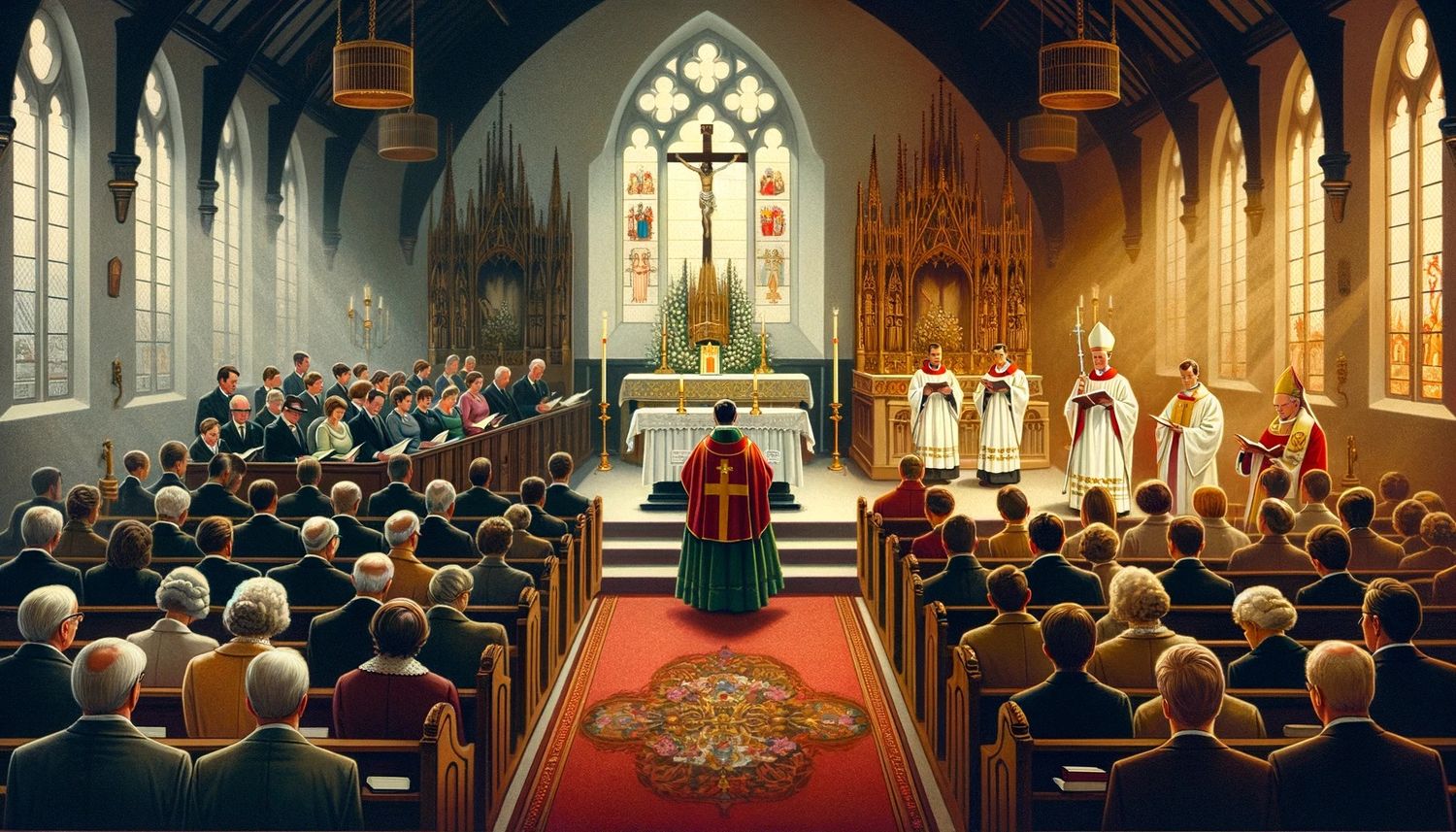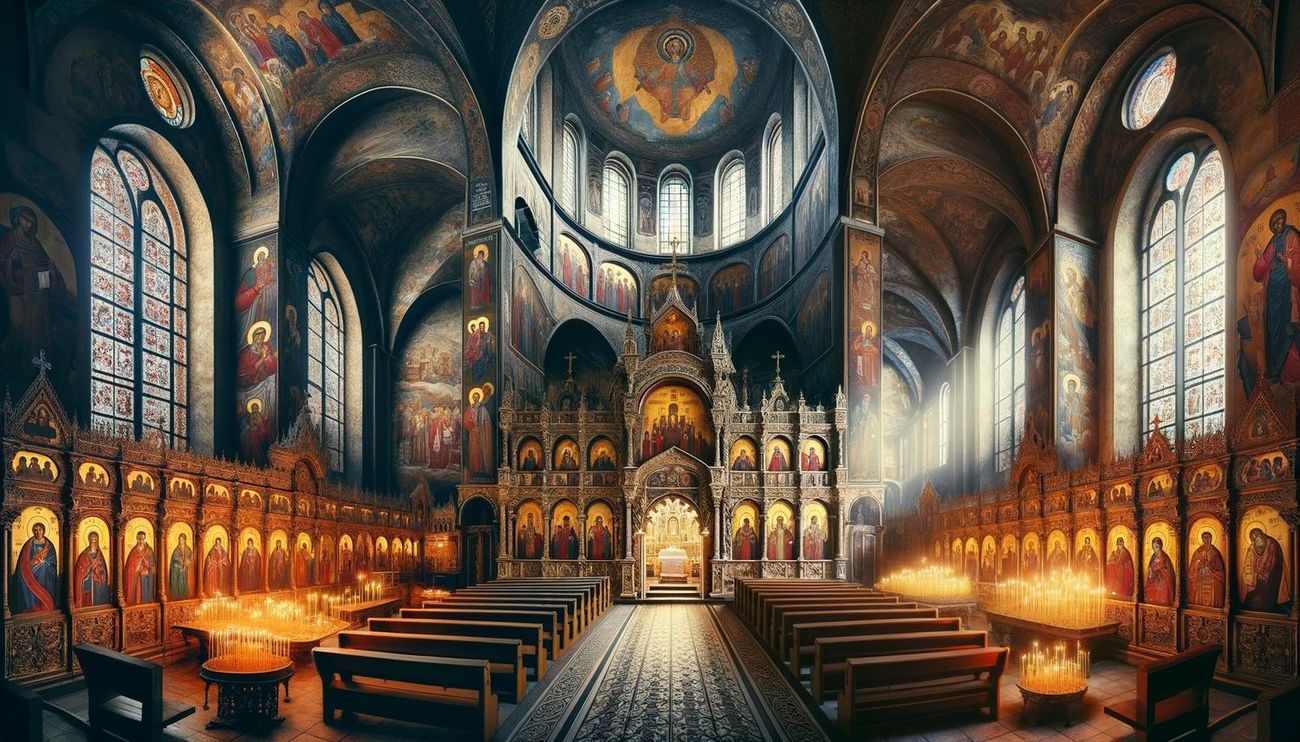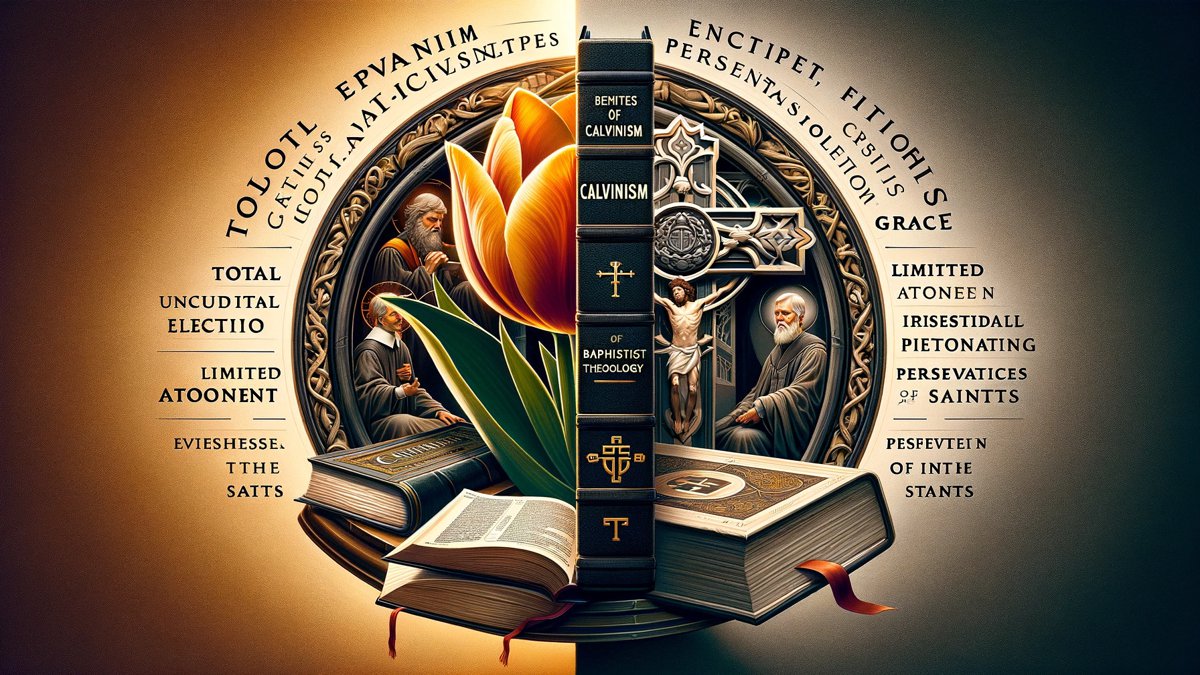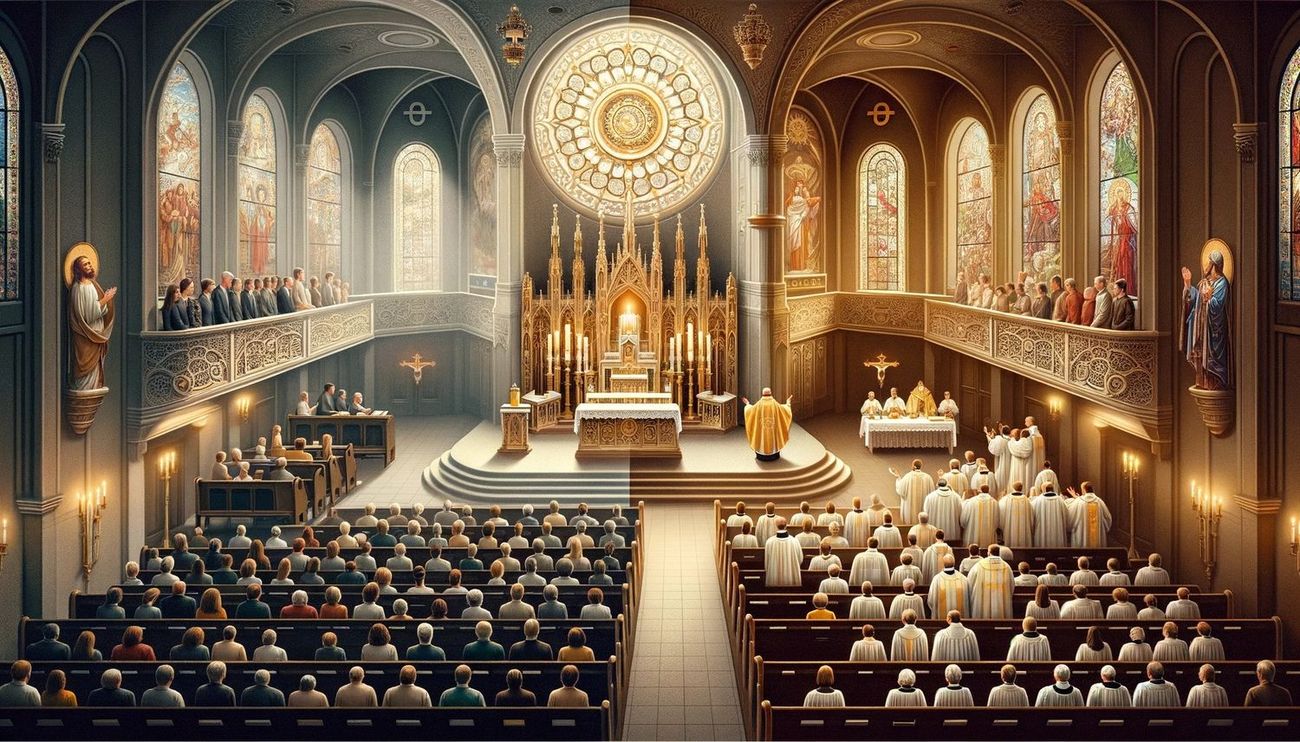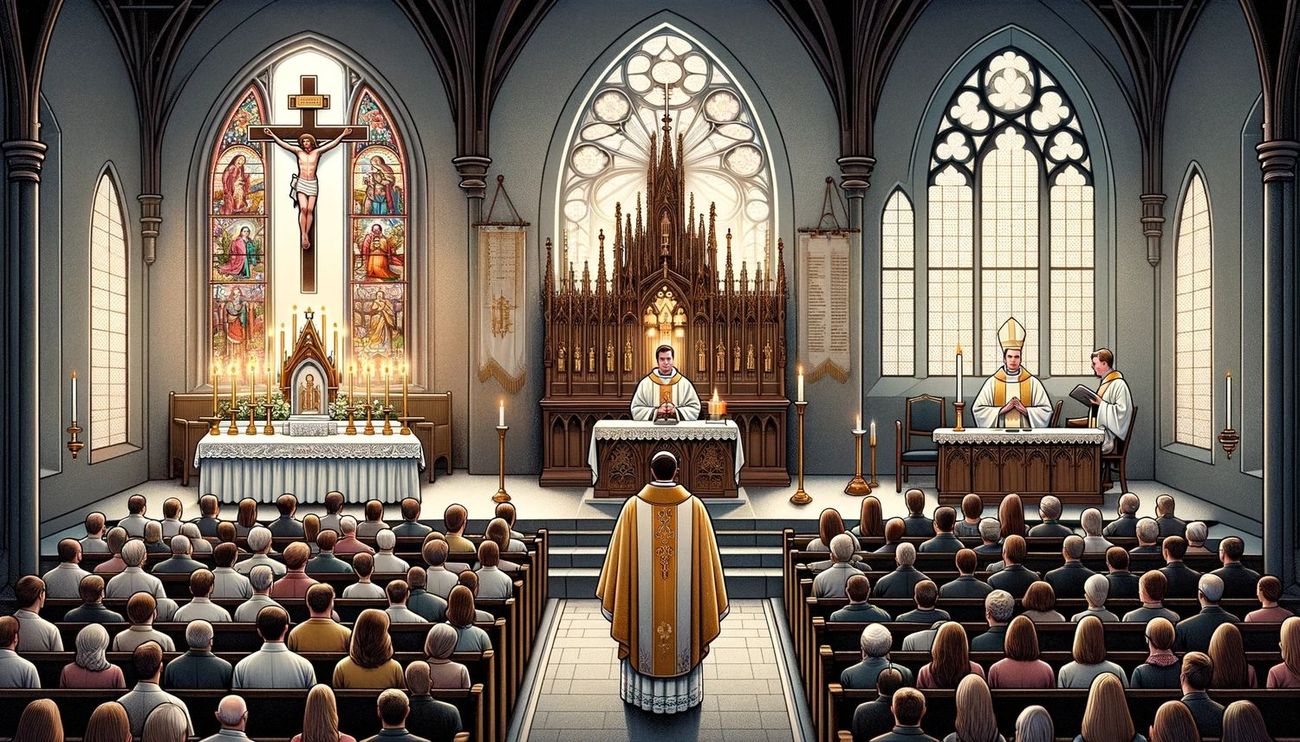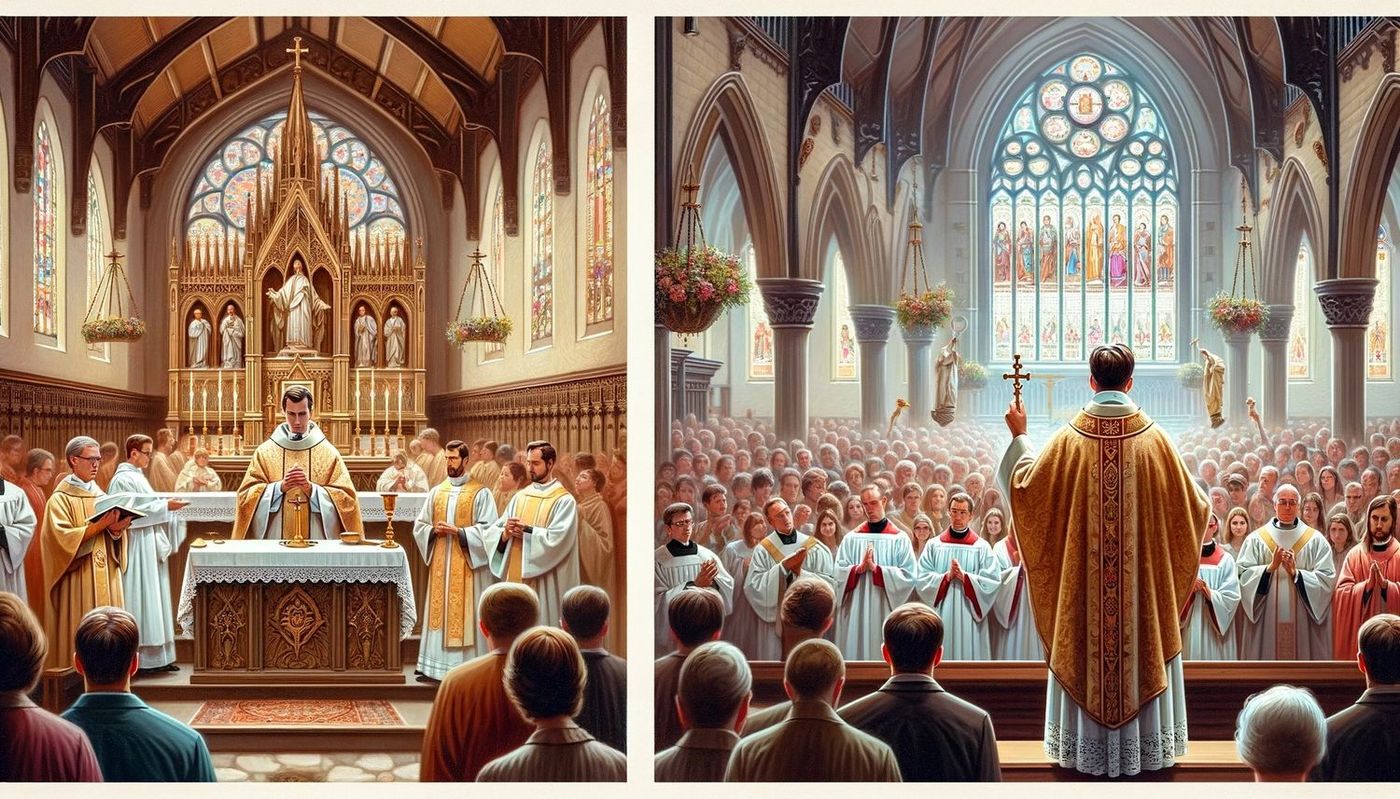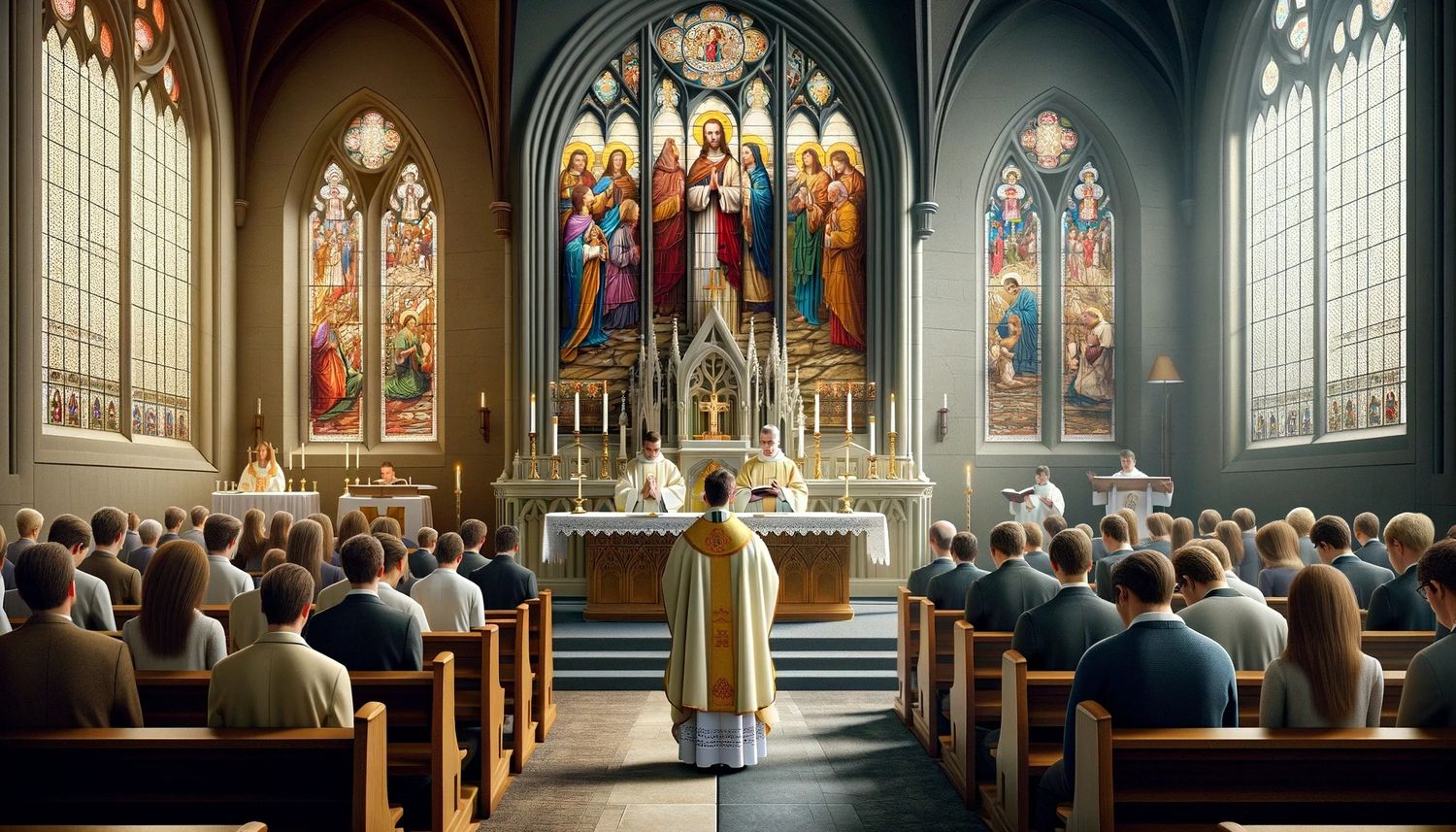Home>Theology and Spirituality>How Are Calvinism And Catholicism Different
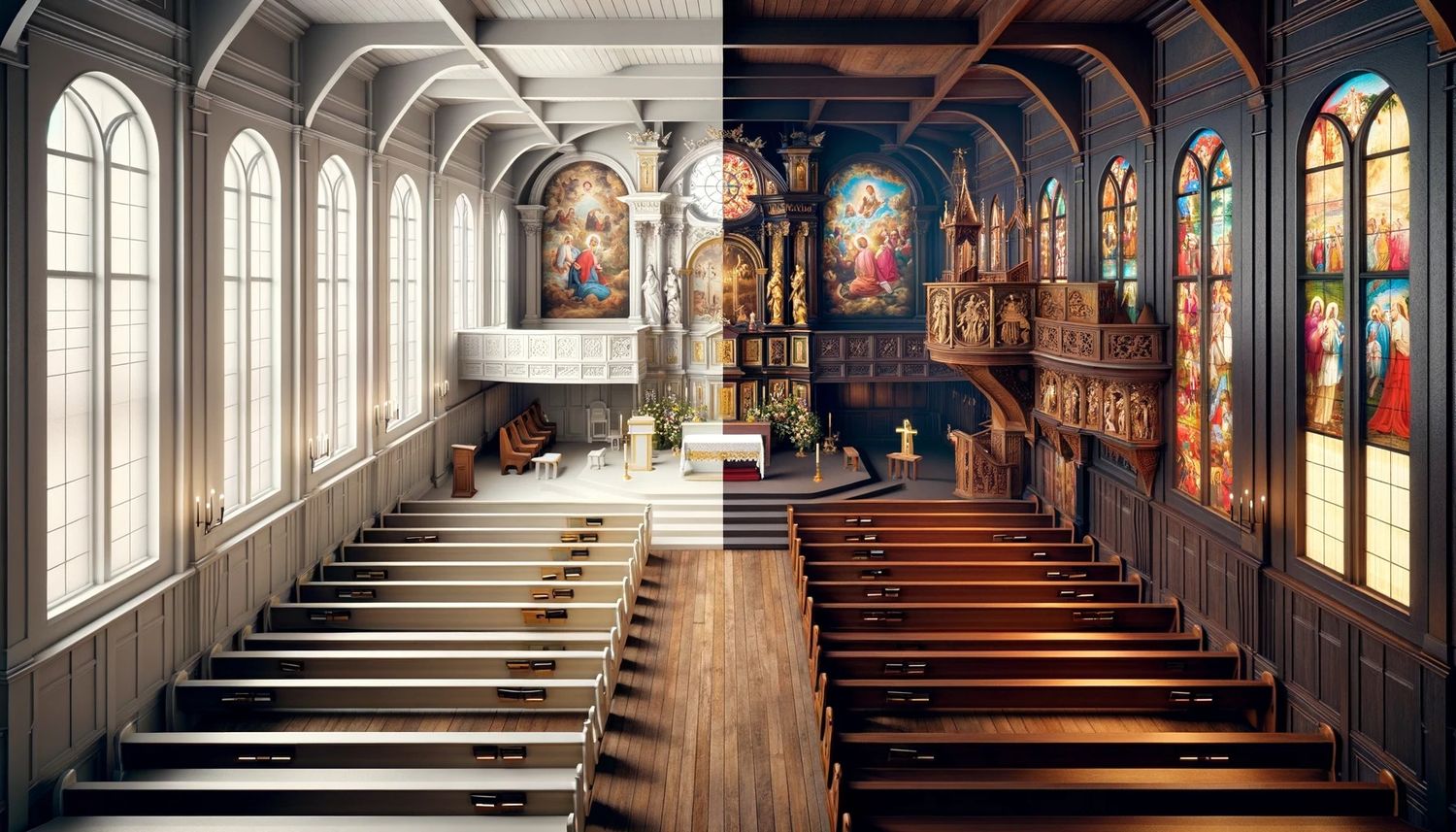

Theology and Spirituality
How Are Calvinism And Catholicism Different
Published: February 18, 2024
Ericka Andersen, an editor at Christian.net, expertly merges digital strategy with content creation, focusing on faith and societal issues. Her communication skills enhance the platform's engaging narratives, fostering meaningful dialogue on belief's impact on society.
Discover the key differences between Calvinism and Catholicism in terms of theology and spirituality. Explore their contrasting beliefs and practices.
(Many of the links in this article redirect to a specific reviewed product. Your purchase of these products through affiliate links helps to generate commission for Christian.net, at no extra cost. Learn more)
Table of Contents
Introduction
Calvinism and Catholicism are two prominent branches of Christianity, each with its own distinct theological perspectives, traditions, and practices. Despite sharing a common foundation in the teachings of Jesus Christ, these two traditions have evolved separately over centuries, leading to significant differences in their beliefs and approaches to spirituality.
As we delve into the comparison between Calvinism and Catholicism, it's important to recognize the rich historical and theological tapestries that have shaped these traditions. Understanding the nuances of each belief system can provide valuable insights into the diverse expressions of faith within the broader Christian community.
In this exploration, we will navigate through the historical roots, theological differences, views on salvation, perspectives on authority and tradition, as well as the distinct practices of worship and sacraments within Calvinism and Catholicism. By examining these aspects, we can gain a deeper appreciation for the complexities and beauty inherent in both traditions, fostering a spirit of understanding and dialogue across theological boundaries.
Historical Background
The historical roots of Calvinism and Catholicism trace back to pivotal moments in the history of Christianity. Catholicism, as the oldest and most widespread Christian tradition, can be linked to the early Christian communities established by the apostles and the subsequent development of the institutional church under the leadership of the Bishop of Rome, known as the Pope. The establishment of the Roman Catholic Church as a dominant religious and political force in medieval Europe further solidified its influence across continents.
On the other hand, Calvinism emerged as a distinct theological tradition during the Protestant Reformation of the 16th century, spearheaded by the teachings of John Calvin. This movement sought to reform certain doctrines and practices within the Catholic Church, ultimately leading to a schism and the formation of various Protestant denominations, including Calvinism.
The Protestant Reformation, marked by theological disputes and calls for church reform, challenged the authority and doctrines of the Catholic Church, giving rise to diverse interpretations of Christian faith. Calvinism, with its emphasis on predestination, the sovereignty of God, and the authority of Scripture, diverged significantly from the sacramental and hierarchical structure of Catholicism.
The historical backdrop of religious and political upheavals, theological debates, and the proliferation of diverse Christian expressions has profoundly shaped the distinct identities of Calvinism and Catholicism. These historical trajectories continue to influence the beliefs, practices, and cultural impact of both traditions in the contemporary world, reflecting the enduring legacy of their historical origins.
Theological Differences
The theological variances between Calvinism and Catholicism are profound, reflecting divergent perspectives on fundamental aspects of Christian doctrine. These disparities encompass doctrines of salvation, the nature of God's sovereignty, the role of human agency, and the understanding of divine grace.
Calvinism, influenced by the teachings of John Calvin, emphasizes the concept of predestination, asserting that God has predetermined the eternal destiny of individuals. This doctrine, known as "unconditional election," underscores the absolute sovereignty of God in choosing those who will be saved, irrespective of human merit or effort. In contrast, Catholicism upholds the belief in free will, affirming that individuals have the capacity to cooperate with God's grace and participate in their salvation through acts of faith and obedience.
Furthermore, Calvinism espouses the doctrine of "total depravity," asserting the pervasive nature of human sinfulness and the incapacity of individuals to initiate their own salvation. This theological tenet underscores the radical corruption of human nature as a result of the Fall, emphasizing the necessity of divine intervention for spiritual renewal. Conversely, Catholic theology acknowledges the reality of sin but emphasizes the potential for moral transformation through the synergistic cooperation of human will and divine grace.
Another significant theological contrast lies in the understanding of the sacraments. In Calvinism, the sacraments are viewed as symbolic acts that signify spiritual truths, devoid of inherent salvific efficacy. This perspective, known as "symbolic or memorial view," diverges from the Catholic belief in the sacraments as efficacious signs of grace, conveying the actual bestowal of divine life to the recipient's soul.
Moreover, the theological differences extend to the understanding of the church and ecclesiology. Calvinism emphasizes the concept of the "invisible church," comprising the elect individuals known only to God, while Catholicism affirms the visible and hierarchical nature of the Church, with sacramental authority vested in the ordained clergy and the papal office.
These theological disparities, rooted in divergent interpretations of Scripture, divine sovereignty, human agency, and the nature of grace, underscore the profound doctrinal distinctions between Calvinism and Catholicism. While both traditions share a commitment to the Christian faith, their theological frameworks reflect the multifaceted tapestry of Christian thought and the diverse expressions of spirituality within the broader Christian community.
Views on Salvation
The contrasting views on salvation within Calvinism and Catholicism encapsulate fundamental theological disparities that have shaped the distinct identities of these Christian traditions. At the heart of this theological demarcation lies the tension between divine sovereignty and human agency, predestination and free will, and the nature of grace and redemption.
In Calvinism, the doctrine of predestination, particularly the concept of "unconditional election," asserts that God, in His absolute sovereignty, has chosen certain individuals for salvation without regard to their merits or actions. This theological framework underscores the belief that the eternal destiny of individuals has been predetermined by God's will alone, emphasizing the radical nature of divine grace in the salvation of the elect. This perspective on salvation reflects the Calvinist emphasis on the sovereignty of God and the utter dependence of humanity on divine initiative for redemption.
Conversely, Catholic theology affirms the significance of human free will in the process of salvation, emphasizing the cooperation of individuals with divine grace. The Catholic understanding of salvation acknowledges the transformative potential of human agency, as individuals are called to respond to God's grace through acts of faith, repentance, and obedience. This synergistic view of salvation underscores the belief in the capacity of individuals to participate in their own redemption, aligning with the Catholic emphasis on the sacramental life of the Church as a means of encountering and receiving God's grace.
Furthermore, the divergent perspectives on the sacraments contribute to the nuanced differences in the views on salvation. In Calvinism, the sacraments are regarded as symbolic acts that serve as visible signs of spiritual truths, devoid of inherent salvific efficacy. This symbolic or memorial view of the sacraments aligns with the Calvinist emphasis on the spiritual significance of these rituals as expressions of faith and communal identity. On the other hand, Catholicism upholds the belief in the sacraments as efficacious signs of grace, conveying the actual bestowal of divine life to the recipient's soul. The sacraments, within the Catholic framework, are regarded as tangible channels of God's grace, intimately linked to the process of salvation and spiritual renewal.
These contrasting views on salvation, rooted in divergent theological emphases on divine sovereignty, human agency, and the sacramental life of the Church, underscore the profound theological disparities between Calvinism and Catholicism. While both traditions affirm the central significance of salvation within the Christian faith, their theological frameworks reflect the intricate tapestry of Christian thought and the diverse expressions of spirituality within the broader Christian community.
Authority and Tradition
Authority and tradition play pivotal roles in shaping the theological frameworks and ecclesiastical structures of Calvinism and Catholicism, reflecting distinct approaches to the interpretation of Scripture, the governance of the Church, and the transmission of doctrinal teachings across generations.
In Calvinism, the authority of Scripture holds paramount significance, serving as the ultimate source of divine revelation and doctrinal truth. The Calvinist tradition emphasizes the sola scriptura principle, affirming the exclusive authority of the Bible in matters of faith and practice. This foundational tenet underscores the belief that Scripture alone, as the inspired Word of God, serves as the normative guide for theological formulation, ethical discernment, and ecclesiastical governance within Calvinist communities. The emphasis on the authority of Scripture reflects the Calvinist commitment to the primacy of biblical teachings and the rejection of extrabiblical traditions that are not explicitly grounded in the biblical text.
In contrast, Catholicism embraces a broader understanding of authority and tradition, acknowledging the significance of Scripture alongside apostolic tradition and the magisterium of the Church. The Catholic tradition upholds the belief in the dual source of divine revelation, encompassing the written Word of God as articulated in the Scriptures and the unwritten traditions passed down from the apostolic era. The magisterium, comprising the Pope and the college of bishops, serves as the authoritative interpreter and guardian of both Scripture and tradition within the Catholic Church, providing doctrinal guidance and ensuring the continuity of apostolic teachings across successive generations. The Catholic emphasis on the interplay between Scripture, tradition, and the teaching authority of the Church reflects a comprehensive approach to theological authority and doctrinal continuity within the ecclesiastical framework.
Furthermore, the divergent perspectives on authority and tradition extend to the ecclesiastical structures and governance models within Calvinism and Catholicism. In Calvinism, the emphasis on the priesthood of all believers and the autonomy of local congregations contributes to a decentralized ecclesiastical structure, characterized by the congregational polity and the absence of a hierarchical priesthood. This congregational autonomy aligns with the Calvinist emphasis on the priesthood of all believers and the direct access to God afforded to every individual within the faith community.
On the other hand, Catholicism embraces a hierarchical ecclesiastical structure, characterized by the papal primacy, episcopal authority, and the sacramental ministry of ordained clergy. The papal office, as the successor of St. Peter, serves as the visible sign of unity and the supreme authority within the Catholic Church, providing doctrinal guidance, pastoral oversight, and the final arbiter of ecclesiastical matters. The sacramental ministry of bishops and priests, entrusted with the administration of the sacraments and the pastoral care of the faithful, reflects the hierarchical nature of the Catholic ecclesiastical structure and the sacramental ethos that permeates the life of the Church.
In summary, the contrasting perspectives on authority and tradition within Calvinism and Catholicism underscore the diverse approaches to theological interpretation, ecclesiastical governance, and the transmission of doctrinal teachings. While both traditions affirm the significance of authoritative sources and doctrinal continuity, their distinct frameworks reflect the multifaceted tapestry of Christian thought and the varied expressions of spirituality within the broader Christian community.
Read more: How Is Judaism Different From Catholicism
Worship and Sacraments
The practices of worship and the administration of sacraments serve as integral components of spiritual life within Calvinism and Catholicism, reflecting distinct approaches to liturgical expression, sacramental theology, and the communal worship experience.
In Calvinism, the emphasis on simplicity and reverence characterizes the worship practices within Calvinist congregations. The Calvinist tradition upholds the primacy of preaching and the diligent exposition of Scripture as central elements of corporate worship. The sermon, serving as the focal point of the worship service, provides a platform for the faithful exposition of biblical teachings, theological reflection, and pastoral exhortation. The Calvinist emphasis on the centrality of preaching reflects the commitment to the authoritative proclamation of God's Word and the edification of the faith community through the diligent study and application of Scripture.
Furthermore, the administration of sacraments within Calvinism, particularly the practices of baptism and the Lord's Supper, reflects the symbolic or memorial view of the sacraments. Baptism, regarded as an outward sign of initiation into the faith community, symbolizes the believer's identification with Christ's death and resurrection, signifying spiritual rebirth and incorporation into the body of Christ. The Lord's Supper, observed as a commemoration of Christ's sacrificial death, underscores the spiritual significance of the Eucharistic meal as a tangible expression of communal remembrance and spiritual nourishment. The Calvinist perspective on the sacraments as symbolic acts devoid of inherent salvific efficacy aligns with the emphasis on the spiritual symbolism and communal significance of these rituals within Calvinist worship practices.
In contrast, Catholic worship encompasses a rich tapestry of liturgical expressions, sacramental rituals, and devotional practices that underscore the sacramental ethos of the Catholic tradition. The Catholic Mass, celebrated as the central act of worship, incorporates liturgical elements such as the readings from Scripture, the Eucharistic prayer, and the reception of the Eucharist, culminating in the communal participation in the sacrificial meal. The Catholic emphasis on the sacramental nature of the Eucharist, as the real presence of Christ, underscores the belief in the transformative power of the sacraments as tangible encounters with the divine.
Moreover, the administration of the sacraments within Catholicism, including baptism, confirmation, Eucharist, reconciliation, anointing of the sick, holy orders, and matrimony, reflects the belief in the efficacious signs of grace that convey the actual bestowal of divine life to the recipient's soul. The sacraments, within the Catholic framework, serve as tangible channels of God's grace, intimately linked to the process of spiritual renewal, communal worship, and the sanctification of the faithful.
In summary, the practices of worship and the administration of sacraments within Calvinism and Catholicism reflect distinct liturgical expressions, sacramental theology, and communal worship experiences. While both traditions affirm the significance of worship and sacramental life within the Christian faith, their distinct frameworks underscore the multifaceted tapestry of Christian thought and the varied expressions of spirituality within the broader Christian community.
Conclusion
In conclusion, the comparison between Calvinism and Catholicism unveils a rich tapestry of historical, theological, and liturgical distinctions that have shaped the identities of these two prominent branches of Christianity. From their divergent historical origins to their theological disparities in doctrines of salvation, views on authority and tradition, and practices of worship and sacraments, Calvinism and Catholicism embody diverse expressions of faith within the broader Christian community.
The historical backdrop of the Protestant Reformation and the subsequent schism that led to the emergence of Calvinism as a distinct theological tradition, alongside the enduring legacy of the Catholic Church as the oldest and most widespread Christian tradition, underscores the complex historical trajectories that have influenced the development of these traditions. The theological differences, rooted in contrasting perspectives on predestination, divine sovereignty, human agency, and the sacraments, reflect the profound doctrinal disparities that have shaped the theological frameworks of Calvinism and Catholicism.
Furthermore, the contrasting views on salvation, authority, and tradition within Calvinism and Catholicism underscore the multifaceted nature of Christian thought and the diverse expressions of spirituality within the broader Christian community. While Calvinism emphasizes the sovereignty of God, the radical nature of divine grace, and the symbolic significance of the sacraments, Catholicism affirms the synergy of divine grace and human agency, the interplay between Scripture and tradition, and the sacraments as efficacious signs of grace.
The practices of worship and the administration of sacraments within Calvinism and Catholicism reflect distinct liturgical expressions, sacramental theology, and communal worship experiences, underscoring the diverse approaches to spiritual life and communal worship within these traditions.
Ultimately, the comparison between Calvinism and Catholicism invites us to appreciate the rich diversity of Christian thought, the enduring legacy of historical and theological developments, and the multifaceted expressions of faith within the broader Christian community. By fostering a spirit of understanding and dialogue across theological boundaries, we can embrace the beauty of theological diversity and cultivate a deeper appreciation for the complexities inherent in the Christian faith.
